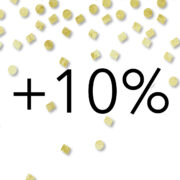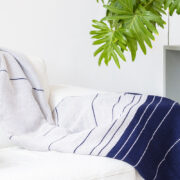We would like to introduce Safa Tableware!
Safa Tableware Foundation is an International Tableware Foundation. We work exclusively with traditional, transparent specialist olive wood workshops to provide distinctive & high-quality products.
Safa Tableware’s mission is to make the international market more accessible to craft workshops through fair and sustainable trade. Moreover, making the traditional crafts attractive to new generations does not lose knowledge.
Want to know more? Go directly to the website www.safatableware.com

Discovering the craft of Safa Tablewares. It comes in infinite styles and shapes. Just like decor pieces, tableware is influenced each year by trends, changing tastes, and innovation. One necessary kitchen item -that will never go out of style- is a sturdy bowl.
A good quality bowl is supposed to last for years and not go out of style, rather be so multifaceted that it becomes a classic piece in no time. In order for an olive wood bowl to last for years, specific know-how is required during production. Safa chooses to collaborate with the most talented workshops in Tunisia, specialized in bowls made of organic olive wood. To let you know what’s behind your new favorite bowl, we’re sharing the Safa manufacturing process with you here.
Olive wood Safa Tableware : Selecting
The first step is the selection of the right wood. Not every kind of olive tree is used for production. Only old trees that have not produced fruit for several years and for which permission has been obtained from the Tunisian government may be felled. New young trees are planted in their place. This creates a rare recycling process that makes Safa olive wood sustainably sourced.
Olive wood Safa Tableware : Sketching
Secondly, only large pieces of olive wood without cracks are used for making bowls. These must have a smooth, undamaged surface using only the best pieces of wood. So, Many different olive wood products are made in the workshop, every piece of wood is used and only a small percentage of the wood is recycled into firewood. After selecting the right piece of wood, it is cut to size and the design is sketched on the wood.
Olive wood Safa Tableware : Turning
Thirdly, after drawing up the design, the piece of wood is placed on the turning machine that extracts the correct diameter within. This is done simultaneously by hand with a bowl gouge. This act will unveil the basic model of the bowl.
Olive wood Safa Tableware : Rounding
This semi-finished wooden piece is then placed on another turning machine that will round the wood from the outside. This action also makes the wood smooth and ready for the final steps in the process.

Olive wood Safa Tableware : Sanding
The next step is to finish the wood by hand. The bowl is sanded, and minor imperfections are removed. During this step, small details can be added to the wood, such as a decorated edge or even a drawing.
Olive wood Safa Tableware : Filling
Sometimes wood paste is then used to fill the smallest imperfections so that the entire bowl is easy to keep clean. Wood paste is made from sawdust and a binding agent.
Olive wood Safa Tableware : Oiling
The last step in the process is oiling the wood. This indispensable step ensures that the olive wood bowl shows its well-known warm golden color and retains natural fragrance. Olive wood is naturally an extremely strong and hard wood that stands the test of time. The oil layer ensures that it is kept nourished, but also heightens its moisture and stain resistance.
This entire process is carried out in the same workshop. The workshops that Safa works with are equipped with the best craftspeople who know and perfect every step in the process in order to obtain the highest quality bowls.
Bon appetit!
Go directly to this blog via Safa Tableware















